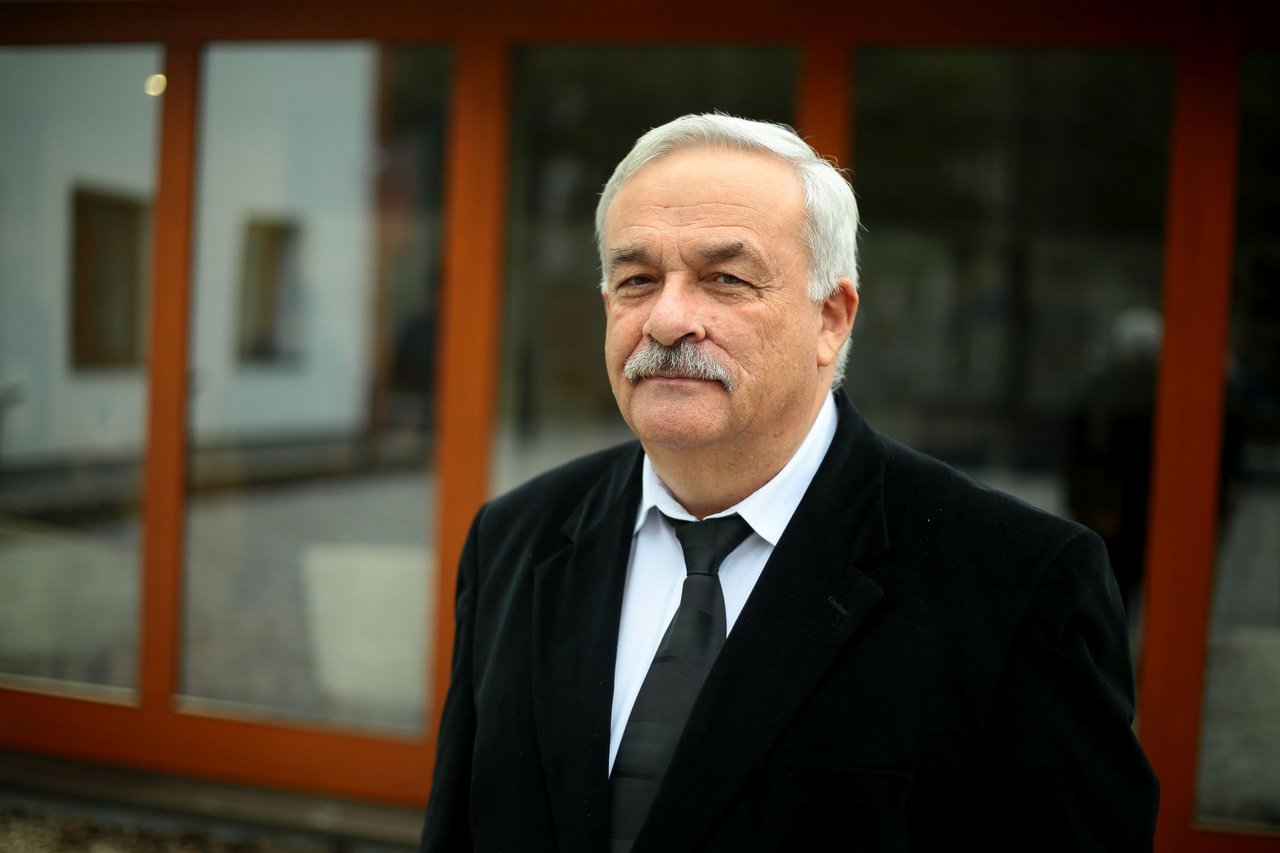How does the Transylvanian Reformed community prepare for the centenary of the Treaty of Trianon, while in the last weeks the territorial autonomy of Szeklerland was rejected in the Romanian Parliament in Bucharest? What does it mean that June 4, the day when the peace treaty was signed in 1920, was declared public holiday in Romania? We asked these questions from Béla Kató, Bishop of the Transylvanian Reformed Church District.

Which flag will you put out on June 4? I am asking this because the House of Representatives in Bucharest has decided to commemorate this date as the Trianon Memorial Day, part of which is the obligation to fly the Romanian national flag on public buildings.
So far, we have never hung flags on the walls of Church buildings, as churches are under divine sovereignty. The law otherwise applies to public institutions, and churches are not included.
On the other hand, you will find the Hungarian flag inside of many Reformed churches in Transylvania.
The interior of the church is different, you can carry there many different things - our memories that are important to us. And it is the competence of the autonomy of the church to decide what language we speak, what symbols we use, and how we live out our identity.
Speaking of autonomy: the Romanian parliament rejected the bill of the Democratic Alliance of Hungarians in Romania (RMDSZ) on this. Does your Church District agree with the territorial autonomy of Szeklerland?
We absolutely agree. The church has always lived in relative autonomy, even during the darkest days of the Communist dictatorship. Even then, we were free, for example, to choose our pastors, manage our finances, and most importantly, to use our mother tongue. These are the cornerstones of self-determination. And Romania as a state has not collapsed because of these pieces of granted autonomy. But without them we would have lost our identity! The word ‘autonomy’ does not sound good in these days, because across Europe it has a connotation of some sort of separatism. But this is wrong. The Reformed Church in Romania has never separated itself from the society, it simply maintained itself, and this is the most important thing for our community. Whoever doesn’t want to grant this kind of autonomy, or at least doesn’t understand it, wants us to disappear, or to fully assimilate. We therefore support territorial autonomy, the exact form of which, of course, is up to discussion - and as we can see, the debate is there. We therefore can’t stop emphasizing that
self-determination belongs to the freedom that man has been given by God.
The Székely Land (Szeklerland) is a region of central Romania. The primary goal for the Hungarian political organisations in Romania is to achieve Szekler autonomy. The Szeklers make up about half of the Hungarians in Romania and live in an ethnic block. According to official data from the Romania's 2011 census, 609,033 persons in Mureş, Harghita and Covasna counties consider themselves Hungarian (56.8% of total population of the three counties). The Székelys (Szeklers), a Hungarian sub-group, are mainly concentrated in these three counties.
How about June 4 being a public holiday in Romania?
I'm actually surprised that it just happened now. What we have faced as a community in recent times, you can call, without hesitation, ‘hate speech’. We understand that no one can be forbidden to talk about their emotions, and to speak up freely to what they think of the Trianon decision. However, Hungarians have experienced harsh rejection in the Romanian Parliament for the same reason. I think we should have this dialogue on a Christian ground, keeping in mind the idea and advise of Jesus: “doing others what you would have them do to you”. Our response to the holiday issue is to continue letting things grow: building institutions, maintaining schools, taking care of our community, and making sure that we don’t become impoverished and forced to change our culture and our values, and of course above all persevering in our faith. We are a small community in Romania. The Hungarian Reformed community hardly represents three percent of the population of the country. It is not enough to play a determining and decisive role, but it is enough to contribute somehow to maintain the colourful reality of the Carpathian Basin, our historic region. On June 4, we give thanks to God that we did not perish, and he did not cut us off from the tree of life.
After the Austro-Hungarian Monarchy lost World War I, the Peace Treaty of Trianon in 1920 greatly altered the shape of the Hungarian Reformed Church. The Peace Treaty cut off two-thirds of Hungary's territories. Consequently, a large number of Hungarian Reformed people now live in the surrounding countries. According to the 1910 Census, around 2.5 (2,621,329) million Reformed people lived in the five Hungarian Reformed Church Districts at that time. With the Treaty of Trianon, the number of Reformed people in Hungary dropped by almost 1 million (916,906).
How do you plan to spend this day?
Due to the novel coronavirus epidemic, there will certainly be no major community events on either the Hungarian or Romanian side. This anniversary is being celebrated in the private sphere. I am preparing for a silent prayer, giving thanks for what we have and asking God for strength so that we can continue to live, and live up to our destiny. The most important thing is to have plans for the future, children, and a space where we live and survive.